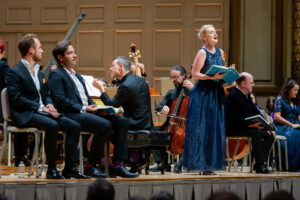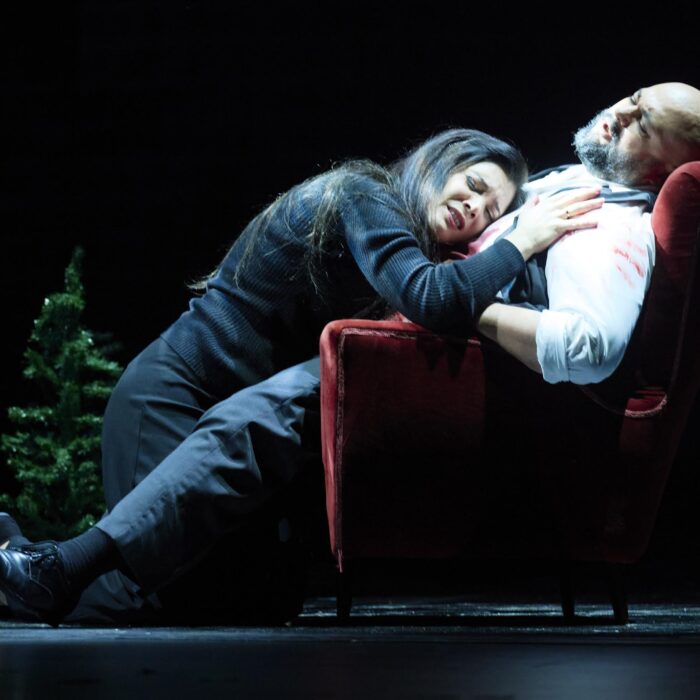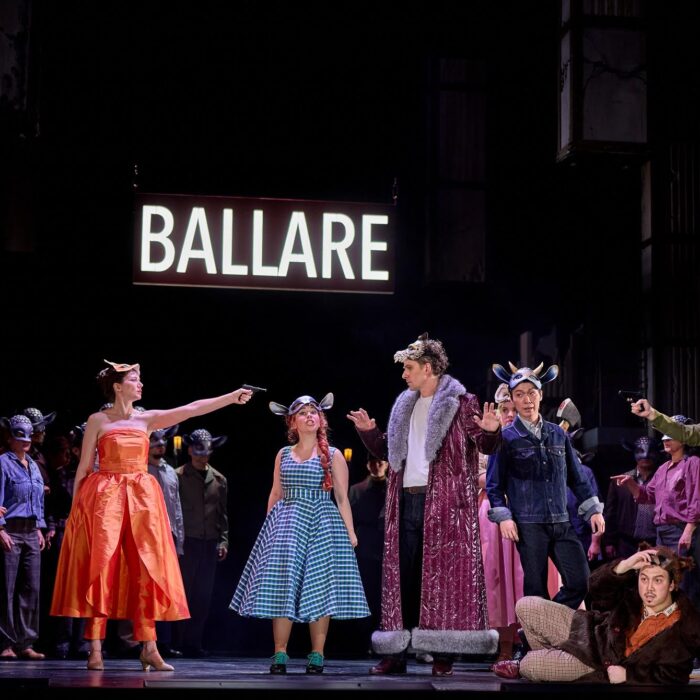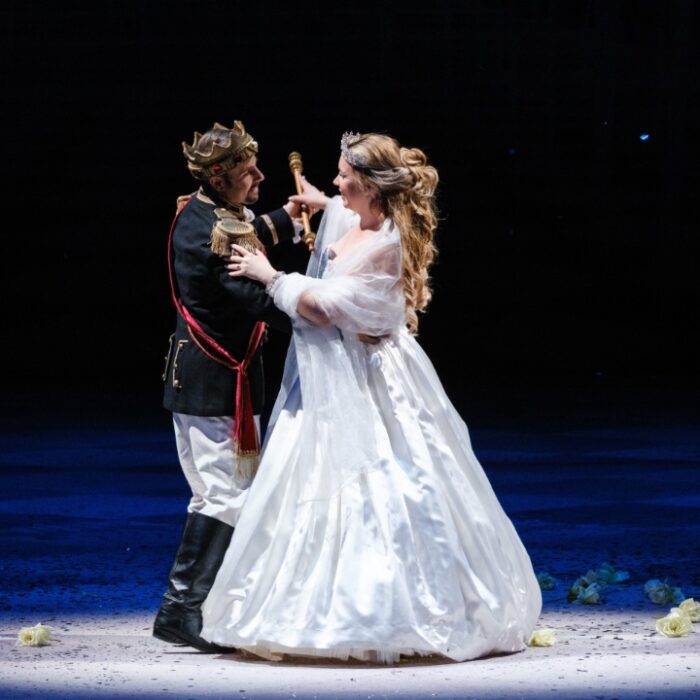
Handel and Haydn Society 2025 Review: Saul
By João Marcos CopertinoSay whatever you want — to me, the story of David and Jonathan is the most beautiful queer love story ever told. Last spring, the Handel and Haydn Society celebrated queerness, but only this fall did they actually perform a work that — at least to me — unapologetically embraced queerness: Händel’s “Saul.” The result was satisfying in a different way than I would have expected.
Bible readers, especially those acquainted with the King James translation, might raise some objections to my queer convictions about David and Jonathan’s affair. Many scholars would even argue for a historicization of their friendship — that we should rethink the issue of masculinities in the past, that things are not what they seemed to be, etc. Nobody here is arguing that “Saul” is a Pride story — though it can be staged as such — but rather that the oratorio represents queer entanglements of love between men in such a way that not addressing it head-on seems to ignore the boldness of the piece.
“Saul” is, in some aspects, a much more cerebral piece than many of the works by Händel that we are accustomed to hearing. Its storytelling is not operatic, though the scene of the witch of Endor could occupy the stage of many operas. The best musical moments of the oratorio tend toward more austere musical phrases, leaving little room
for thrilling, speedy coloratura for the singers.
At times, “Saul’s” music feels extremely bold: from the chiming bells at the end of Act One (which will keep ringing in your ears days after the performance) to Saul’s funeral march in C major! It is an oratorio not free of surprises. Surprising as well was the performance of the Handel and Haydn orchestra and chorus. The orchestra maintained its distinguishing characteristic of having a “bigger” sound than most historically informed groups today: they had three choruses onstage and performed in the giant Symphony Hall without any lack of reverberation. Yet the group sounded more tame than usual. It was a pleasant surprise for a season opener, but at times it felt that the dramatic action needed a bit more drama — a bit more strings, or a bit more “spice.” Perhaps it was Jonathan Cohen’s doing — not wrongdoing by any means, but not to my personal taste. But come on, I am an opera man!
I was particularly glad to hear Christopher Lowrey. Sporting an (almost Errol-Flynn-style) mustache well-suited to him, the countertenor has one of the most beautiful timbres I have ever encountered. Some countertenors can sound almost like an operatic Mickey Mouse; Lowrey, on the contrary, sounds just right, with a pure tone that, in the best moments of the first and third acts, allows one to see the David that lulls Saul to sleep at night. The final “O fatal day! How low the mighty lie!” was a perfect ending to the night. The singer did not take many risks — his David was mostly sober, without many da capo variations or added high notes. As I said, I felt that the performance needed some overall spice, but that is a matter of personal taste. It was also noticeable that the singer had a harder time singing the recitatives in the second act. Still, such a charming performance!
That said, the best surprise of the night was hearing Linard Vrielink as Jonathan. First and foremost, it is always refreshing to see a rendition of Jonathan that does not fall into an exaggeration of meek femininity (“From cities stormed, and battles won” was solemn). Vrielink makes Saul’s son a true hero, with much stage charm and charisma. I was also a bit surprised to see that the singer is building his career singing mostly early music repertoire instead of tackling later works. He certainly has a tone significantly richer in color and vibrato than what is usually preferred by Baroque conductors today. His stage presence was striking, and his voice brought an operatic defiance that emphasizes the singularity of Händel’s “Saul” compared to many other representations of the biblical story.
Neal Davies sang the role of Saul with much correctness and conviction. His great moments in the third act were there. But I must say that — perhaps through no fault of his own — it felt as though Davies became a supporting role in his own oratorio. It did not help that the moments of greatest psychological depth were undermined by the concert format (with one holding the score); it also did not help that, at times, his phrasing lacked the vocal fierceness that Händel gives to his basses — especially through that great connection between the English text and explosive consonants.
I was a bit ambivalent at first about the performance of Sarah Brady. The soprano certainly has a very beautiful instrument, and her tone, at least in the speedier moments (“What abject thoughts a prince can have!”), sounded as lovely as that of many other lyric sopranos. Her artistic distinctiveness, however, became clear in the third act (“From
this unhappy day”), when she managed to sing the most beautifully phrased crescendos, without ever losing legato while preserving that beautiful ringing quality that makes everything even more special.
Replacing the much-in-demand Julie Roset, Amanda Forsythe tackled the role of Michal with romantic charm. The higher range of the soprano is a bit less velvety than I would like, but it is also true that in those moments her voice becomes more recognizable. Also, I fear that Michal is not the role that best displays Forsythe’s abilities — she is particularly adept in agile passages without making them sound “too light” for their own good.
Overall, it is such a privilege to be in Boston, a city where Baroque repertoire is taken seriously, especially with such a professional performance of “Saul.” But perhaps next time it could be staged? I think much of the missing “spiciness” would emerge with a bit more theatrics. Nevertheless, it is a show worth seeing.


